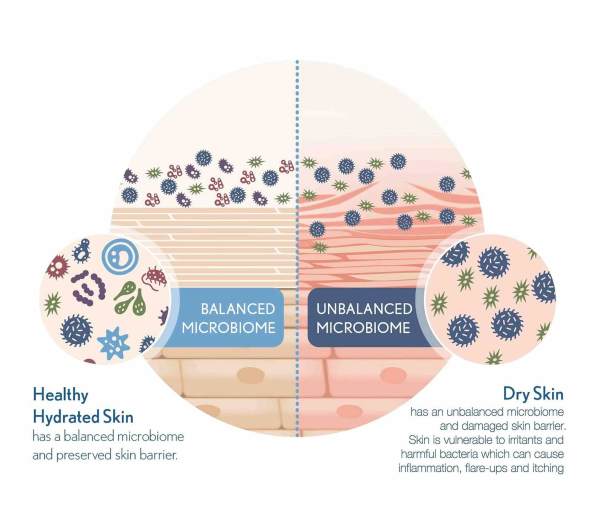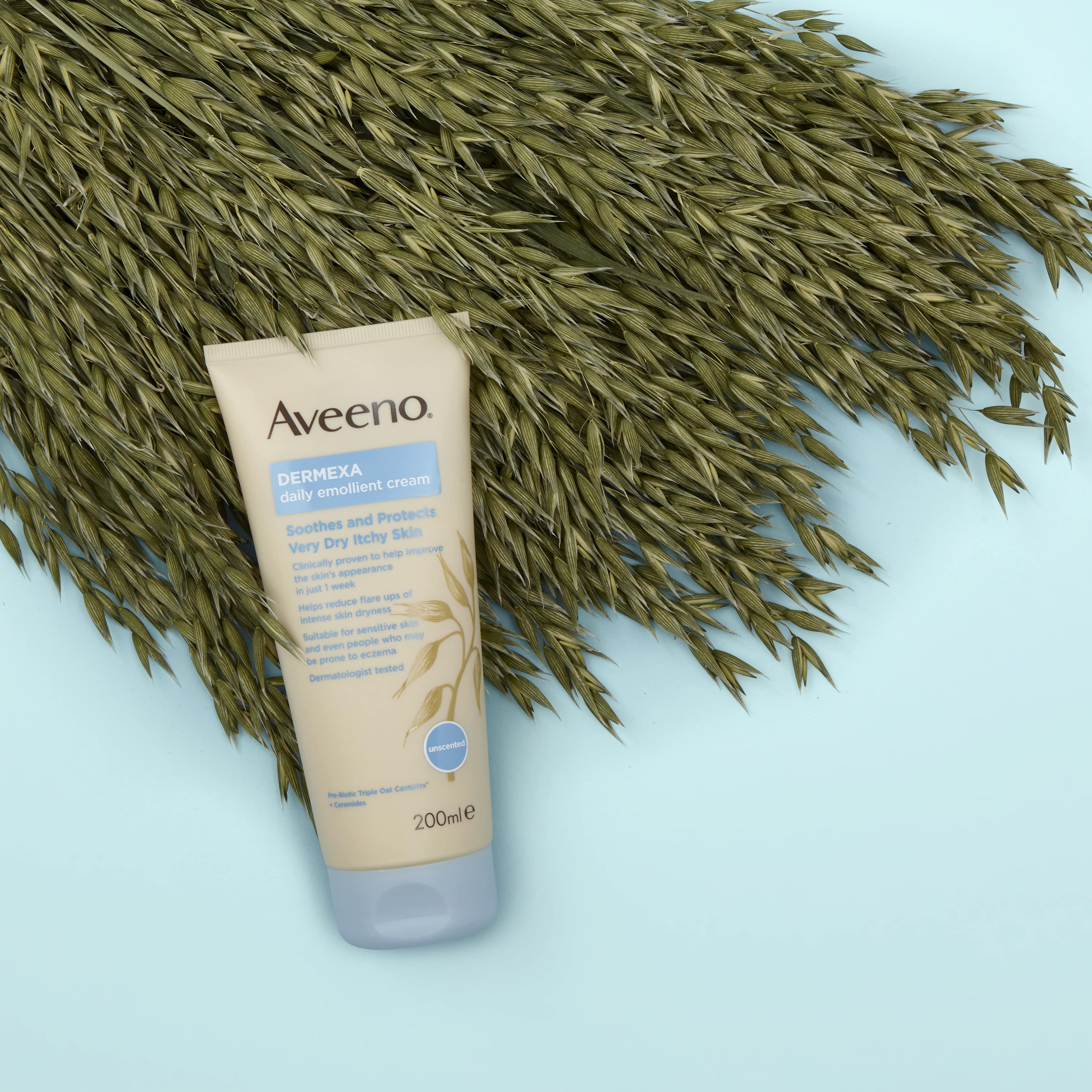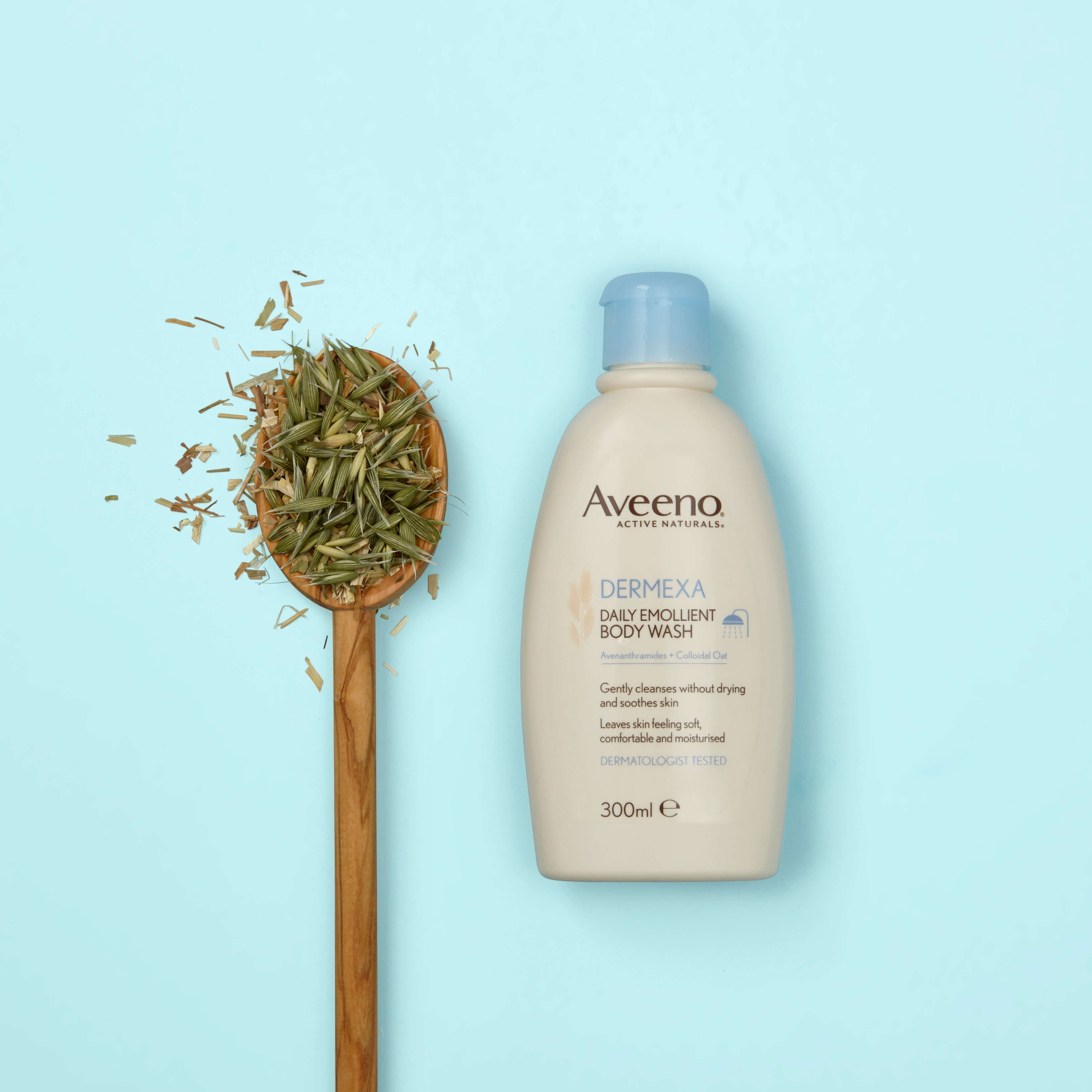VERY DRY ITCHY, ALSO ECZEMA PRONE SKIN?

The importance of treating very dry itch, also eczema prone skin
Whether it’s you or a family member, experiencing very dry itchy skin can affect day to day life. From worrying about flare-ups of dry skin to dealing with the frustration that very dry itchy skin can cause, there are many reasons why this can have both a mental and physical impact
Caring for your skin
It’s important that very dry itchy skin, and skin that’s prone to eczema is correctly cared for, to ensure it has minimum impact on yours and your family's life. Wearing clothes with natural fibres like cotton, keeping wrapped up in cold weather to avoid skin dehydration, and having a moisturising regime can help reduce flare-ups of dryness.

Your skincare routine
Proper bathing and moisturising are essential for the daily care of sensitive and dry itchy skin. Moisturisers can help trap water in the skin, helping to keep it more flexible and less likely to crack. It is important to keep up a regular moisturising routine even when you’re not experiencing a flare-up. Mild cleansing can also help prepare the skin for topical therapies. This can help keep the barrier intact to help prevent future flare-ups.
Finding the right products for very dry itchy skin makes a huge difference, whether it’s for you, your partner, or your little one, and using them regularly is just as important.
The Dermexa range is a family friendly solution to help you care for all your very dry itchy skincare needs. With a Daily Emollient Cream, Body Wash and Long-Lasting Balm, these products can help you rebalance your family's skin with confidence.
The “itch-scratch” cycle
When the skin becomes dry and irritated, it itches. Scratching triggers the release of a chemical called histamine which causes more inflammation and itching, making the itch even worse. This is known as the “itch-scratch cycle”.
Managing common triggers
Identifying and avoiding triggers, as well as proper bathing and moisturising, are an important part of managing dry itchy skin.
IRRITANTS
Some things can make dry itchy skin worse. These are called irritants. Over time, you’ll learn which things cause problems for you or your child. Common irritants can include:
Soaps and detergents
Bubble-bath and certain shampoos
Disinfectants like chlorine
You could consider:
Washing new clothes before wearing them.
Using dye-free and fragrance-free products.
Using suncream made for sensitive skin.
ENVIRONMENT
Extremes of temperature and humidity may trigger a flare-up of dry itchy skin. Environmental triggers include:
Hot or cold temperature
High or low humidity
Cigarette smoke
Pollution
Itch relief
To help soothe itchy skin, experts recommend the following tips:
Try to avoid the things that make you itch - This could be for example wool clothing, an overly warm room, too many hot baths or exposure to harsh cleansers.
Apply a cold, wet cloth or ice pack to the skin that itches - Do this for about 5 to 10 minutes or until the itch subsides.
Take an oatmeal bath - This can be very soothing for skin that is dry and itchy.
Moisturise daily - Apply a high-tolerance and fragrance-free moisturiser at least once a day .
Use creams, lotions or gels that soothe and cool the skin
Try over-the-counter allergy medicine - Some of these drugs, such as diphenhydramine, can make you drowsy. They might be helpful at night if your itchy skin keeps you awake.
Use a humidifier - A humidifier may provide some relief if home heating causes the air in your home to be dry.
Try to maintain an even temperature and humidity in your home.

Fortify your skin’s microbiome
Your skin has a diverse community of good and bad bacteria that make up its microbiome. Healthy-looking skin has a balanced microbiome and preserved skin barrier. Dry Itchy skin has an unbalanced microbiome and altered skin barrier. Much like our gut relies on active probiotics and other gut bacteria to restore health, the biome of the skin needs to maintain certain bacteria to keep the skin looking healthy. Prebiotics are food for probiotics and the microbiome. In skincare, prebiotics like colloidal oatmeal encourage the presence of good bacteria, which can help create a healthy environment for the skin microbiome (1,2)
Soothe and moisturise very dry itchy skin
AVEENO® Dermexa Daily Emollient Cream with Triple Oat Complex* (Oat Essence, Oat Oil and Colloidal Oatmeal) and Ceramides, helps moisturise, soothe, and strengthen the skin barrier. It is also suitable for eczema prone skin.
*in vitro test
Effects of topical lotions on the atopic dermatitis skin microbiome and associations with itch and skin barrier function. Johnson & Johnson Consumer Inc. poster pres nentation at the 76th Annual Society for Investigative Dermatology (SID) Meeting: April 26-29, 2017; Portland, OR, USA.
Fermentation of colloidal oatmeal by cutaneous bacteria results in enhanced production of lactic acid and short chain fatty acids. Johnson & Johnson Consumer Inc. poster presentation at the American Academy of Dermatology Annual Meeting, 16-20 February 2018, San Diego, California, USA.

AVEENO® Dermexa Daily Emollient Cream with Triple Oat Complex (Oat Essence, Oat Oil and Colloidal Oatmeal) and Ceramides, helps moisturise, soothe, and strengthen the skin barrier. It is also suitable for eczema prone skin. Suitable for sensitive skin and also for people who may be prone to eczema.
AVEENO® Dermexa Daily Emollient Body Wash with Avenanthramides, naturally found in oats and well known for their soothing properties on the skin. For healthy looking and more resilient skin from day one.

Effects of topical lotions on the atopic dermatitis skin microbiome and associations with itch and skin barrier function. Johnson & Johnson Consumer Inc. poster pres nentation at the 76th Annual Society for Investigative Dermatology (SID) Meeting: April 26-29, 2017; Portland, OR, USA.
Fermentation of colloidal oatmeal by cutaneous bacteria results in enhanced production of lactic acid and short chain fatty acids. Johnson & Johnson Consumer Inc. poster presentation at the American Academy of Dermatology Annual Meeting, 16-20 February 2018, San Diego, California, USA.